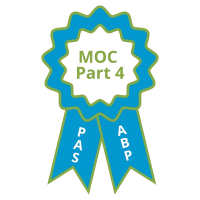Quality Improvement/Patient Safety Works in Progress
Session: Quality Improvement/Patient Safety Works in Progress
WIP 04 - Enhancing Safe Sleep Protocol (SSP) Adherence in a Nursery and NICU Setting
Friday, April 25, 2025
5:30pm - 7:45pm HST
Publication Number: WIP 04.7663
Jennifer J. Kim, University of California, Los Angeles David Geffen School of Medicine, Los Angeles, CA, United States; Lisa Soumekh, UCLA, Los Angeles, CA, United States; Jane Ryu, University of California, Los Angeles David Geffen School of Medicine, Los Angeles, CA, United States
- HD
Hannah Daniel, MD
Resident Physician (PGY-2)
UCLA Pediatrics
WIP Poster Presenter(s)
Background: The American Academy of Pediatrics' 2022 guidelines encourage healthcare providers to educate, promote, and model safe sleep practices (SSP) from early pregnancy onward. Despite general adherence to SSP recommendations, variability in understanding and implementation remains across healthcare settings.
Objective: Our quality improvement (QI) study aimed to increase the availability of SSP educational materials and to improve adherence to SSP among newborn parents and medical providers in the nursery and NICU by 20% by January 2025.
Design/Methods: A core SSP QI team was established to identify the key drivers and implement interventions. The first intervention involved SSP education for nursing staff through two educational sessions in July 2023 and March 2024. These sessions focused on project objectives, the importance of SSP, and key information necessary to communicate to parents. We also integrated an informational SSP video into newborn parents’ discharge materials. Lastly, we designed SSP educational materials to be directly attached to each newborn bassinet. We will continue to send out reminder emails to newborn nursery staff regarding SSP and request feedback.
Baseline pre-intervention Likert-based surveys were distributed to both medical providers and newborn parents to assess knowledge of SSP and the availability of educational resources. Post-intervention surveys will be administered to evaluate improvements in SSP knowledge and adherence. Key outcome measures include the percentage adherence to SSP among parents and medical providers, while process measures include the percentage of SSP crib cards attached to bassinets. Compliance was monitored through routine crib audits, run chart completion, and Statistical Process Control (SPC) charts for data analysis where applicable. Data will be analyzed by January 2025 to assess the impact of interventions. Given that no protected health information was collected, this project received exempt status from the IRB.


